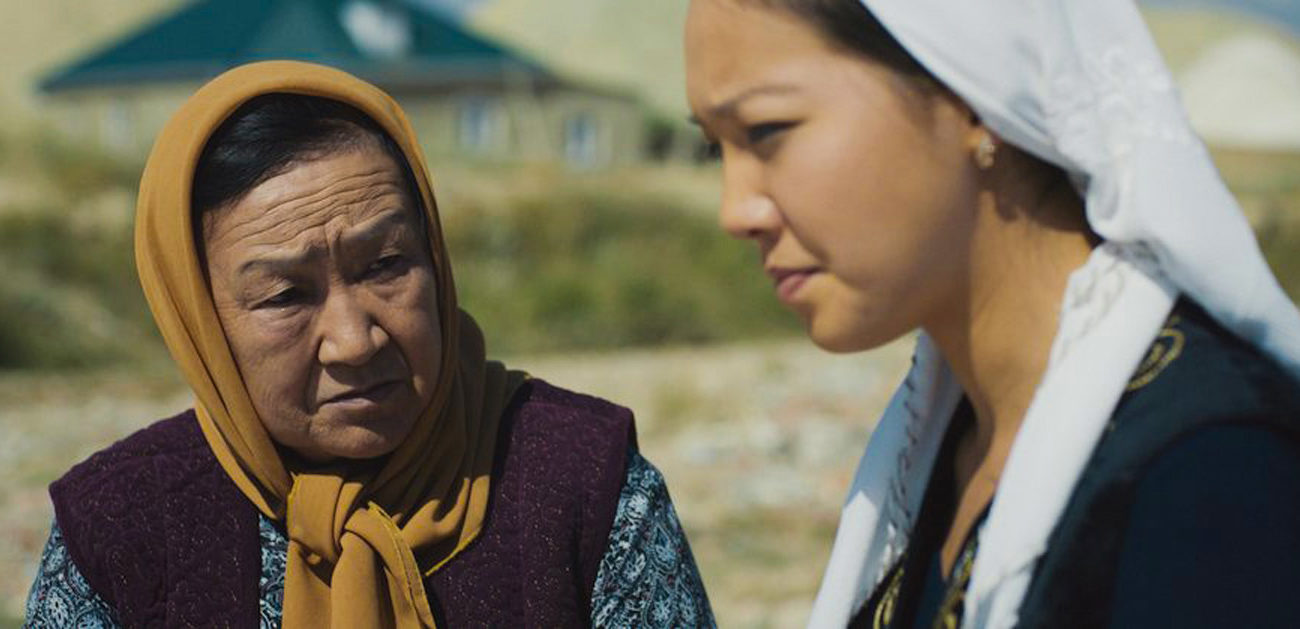Short films, like short stories, are an exercise in economy and punch. They are measured in minutes, not hours, stripping away all the excelsior and subplots of longer forms to achieve a singular impression that is no less complex and far-reaching for being brief as a bolt of lightning on the far horizon.
In other words, a short film, for all its shortness, can contain vast worlds of feeling and meaning, and this year’s Oscar-nominated shorts are no exception. All together this year’s live-action offerings, five in total, clock in at just under two hours, and yet viewed back-to-back, they range across the globe and over an emotional landscape that is by turns staggering, devastating and enlightening.
The longest of the bunch is also the most frankly straightforward, and crushing. Ala Kachuu (“Take and Run,” Switzerland/Kyrgyzstan, written and directed by Maria Brendle, 38 min.) is titled after the Kyrgyz term for bride kidnapping, and its narrative moves with the compulsive momentum of a nightmare. It tells the story of Sezim (Alina Turdumamatova), a young woman who defies her conservative family by moving to the city for college, where she is kidnapped from work and taken to a rural village into forced marriage. Tradition and modernity collide, yes, but underlying the film is a furious appeal to basic human rights.
Enlarge
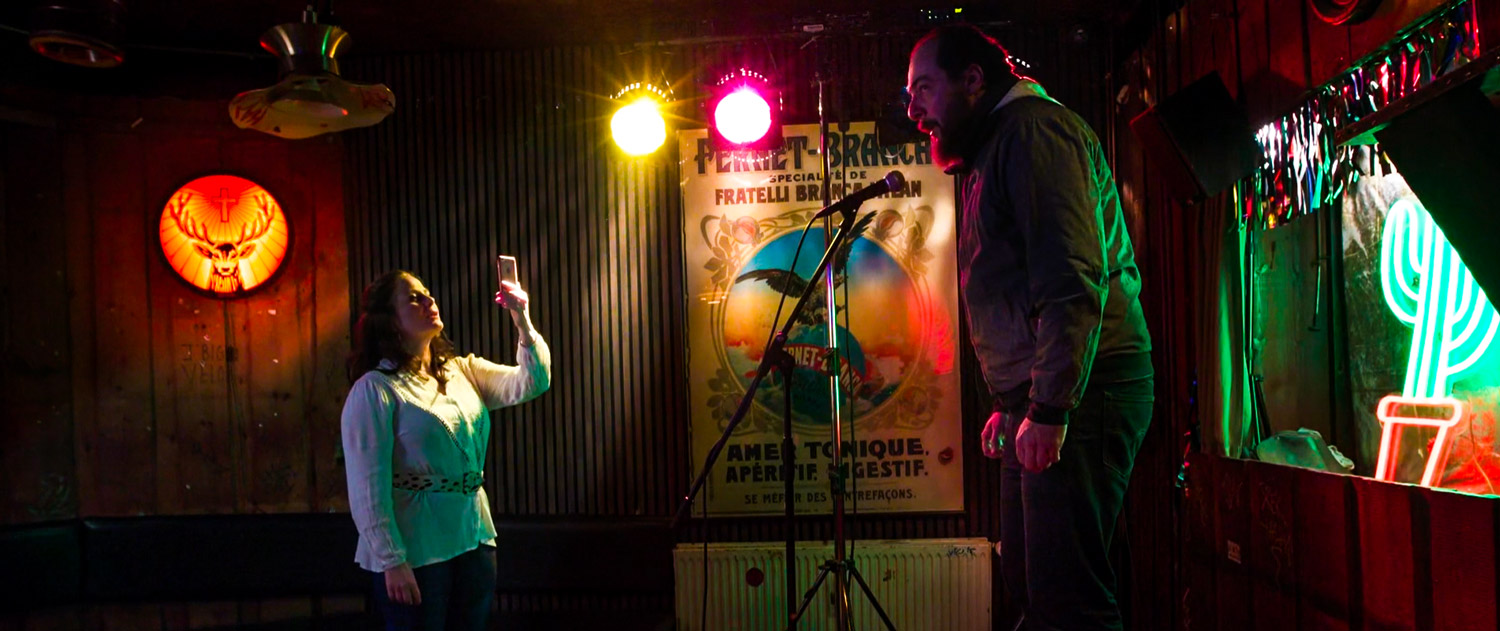
As intimate and quiet as Alu Kachuu is urgent and alarming, On My Mind (Denmark, written and directed by Martin Strange-Hansen, 18 min.) is a disarming bit of barfly vérité that resolves itself into a bittersweet valentine to love, loss and mortality. The film opens like the set-up to the classic joke: A man (Rasmus Hammerich) walks into an empty bar, asking the grouchy owner (Ole Boisen) if he can sing an Elvis song on the karaoke machine. The punchline, however, is surprising and profoundly moving — exemplified best by the barkeep’s (Camilla Bendix) observation that “the time of miracles isn’t over after all.”
Enlarge
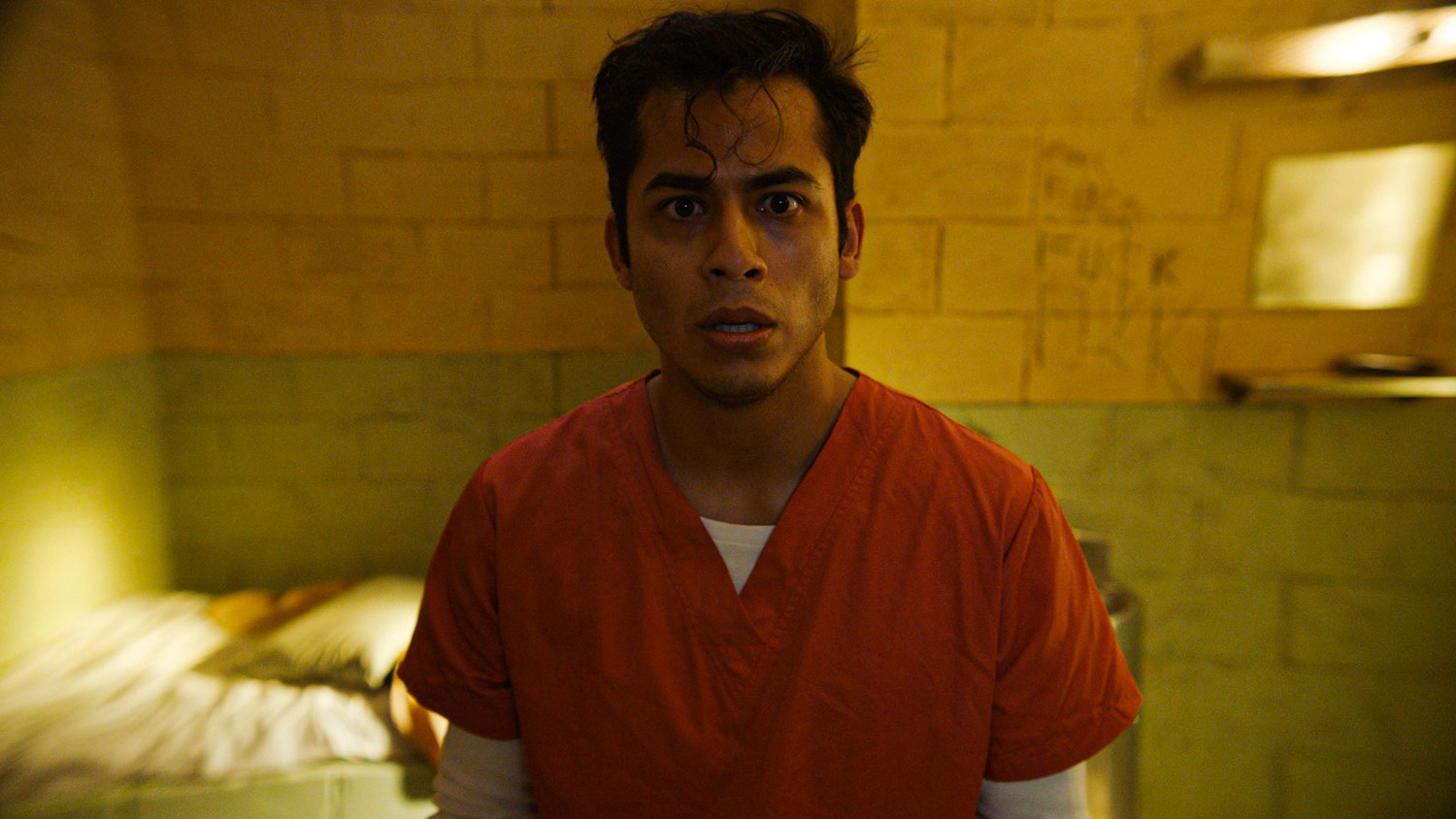
Kafka meets Orwell meets consumer digital hell in Please Hold (U.S., directed by KD Dávila, written by Dávila and Omer Levin Menekse, 19 min.), the story of a young man, Mateo (Erick Lopez), in L.A. who is suddenly and for no apparent reason arrested — by a drone, which instructs him to place the proffered handcuffs on himself under threat of non-lethal violence. No charges are offered, but Mateo is transported to a cell, where he is informed by television screen of everything from upgrading his accommodations by credit card, to procuring a lawyer for ten grand to avoid a half-century sentence, to working for pennies on the dollar knitting hip accessories for sale. The dystopian scenario is nothing new, but the neoliberal twist — of privatized prisons run for profit — updates the blunt Stalinist brutalities of last century into a new realm of ubiquitous surveillance and monetized inhumanity wielded by an untouchable corporate-state authority. It’s pretty terrifying.
Enlarge
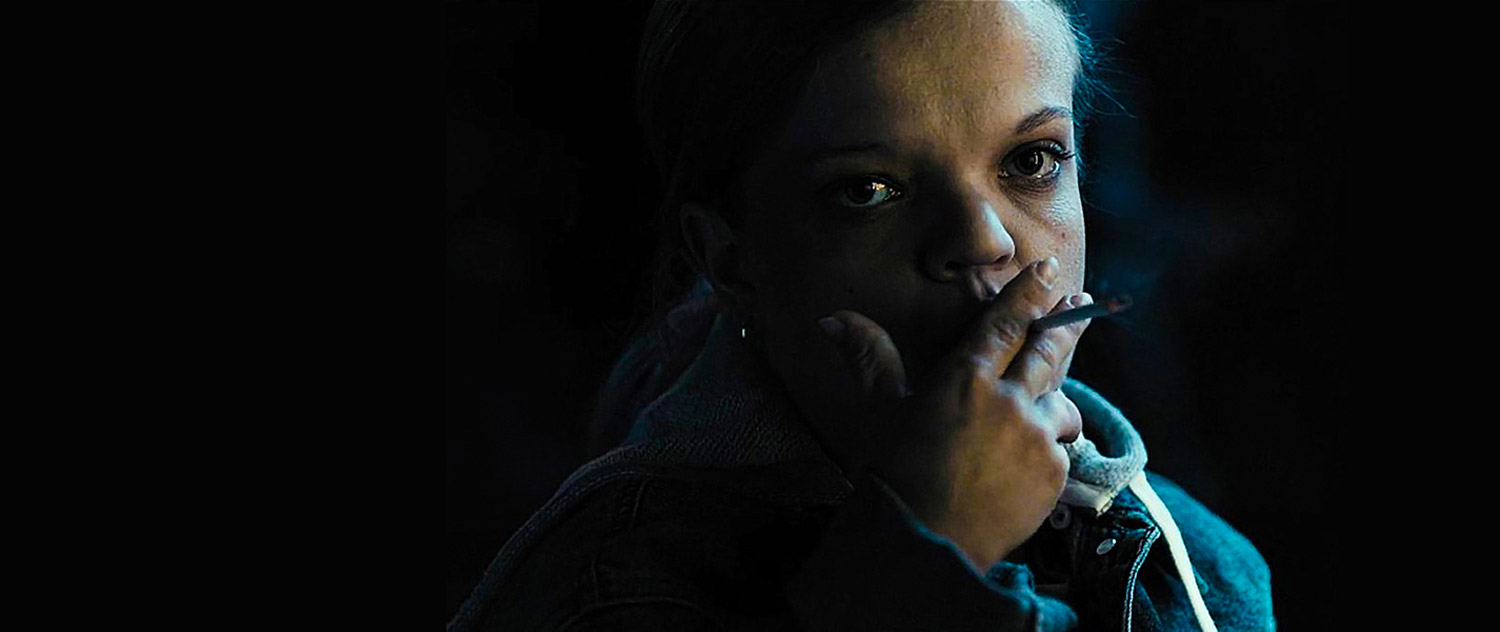
My favorite of the bunch, and a short film that carries more heart and heft than many movies four times its length, is The Dress (Poland, written and directed by Tadeusz Lysiak, 30 min.). It stars the wonderful Anna Dzieduszycka as Julka, a dwarf working as a maid at a fleabag motel/truck stop in rural Poland. Wry, weary and unbearably lonely, Julka spends her days fielding endless stares and circus jokes about her size, and her nights drinking, smoking and playing video lottery.
She longs, hopelessly, for some kind of normal human connection — yes, sex, to be blunt — and when a handsome, kind trucker shows an apparently un-fucked-up interest in her, her hopes are kindled. To reveal more would spoil the devastating impact of this film, which achieves on screen what masters like Anton Chekov and Flannery O’Connor achieved in print, and not in dissimilar fashion. Be prepared to pick yourself up off the floor after this one.
Enlarge
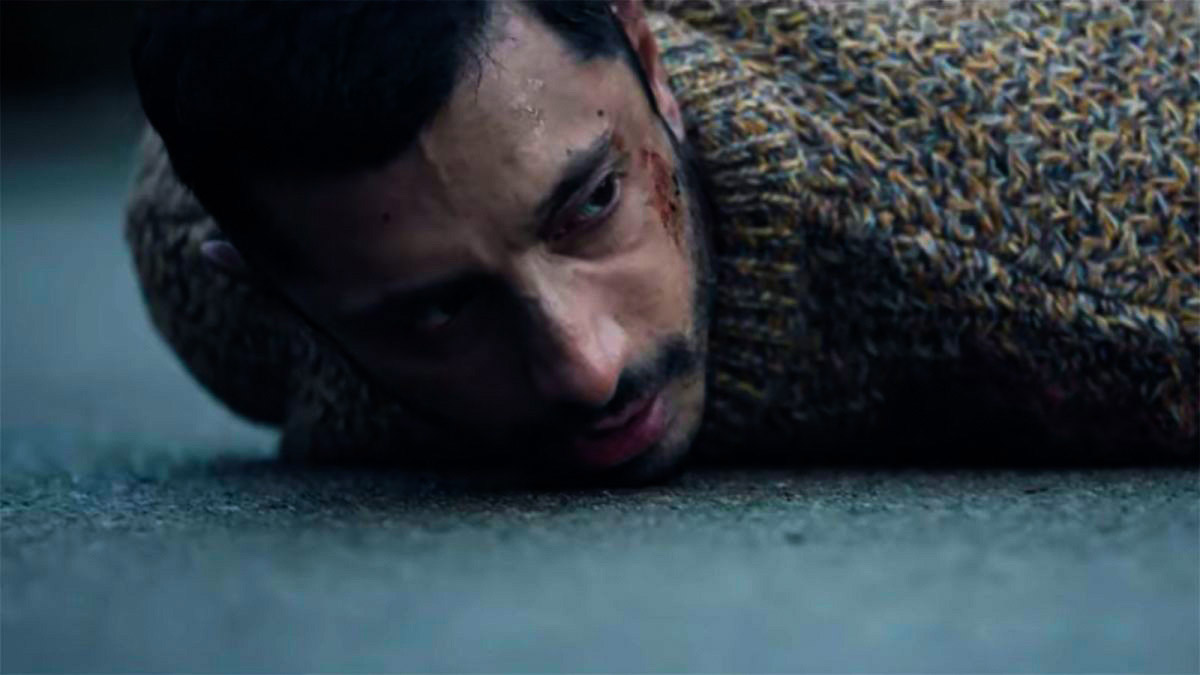
Riz Ahmed’s The Long Goodbye (U.K./Netherlands, directed by Aneil Karia, 12 min.) is an uncategorizable blow to the solar plexus that left me so infuriated, and so scared for what’s coming in our near future, that I actually found myself walking in circles as its credits rolled. The film’s nearest kin is Donald Glover’s “This is America” video, and like that 2018 shot across the bow of American social collapse, this is a dire and violent howl against growing far-right anti-immigrant violence in Brexit Britain — and, by extension, everywhere. Ahmed, who hit big in 2019 with the movie Sound of Metal, released the film with his concept album of the same name — a kind of break-up album with the U.K. The film, which opens with a chaotically loving scene of Ahmed and his British Asian family preparing for a wedding, ends with a scene of equal and opposite chaos (think Kristallnacht). It must be seen to be
believed. But believe it we must.
ShortsTV presents three programs of Oscar-nominated short films (live action, animated, documentary) opening Friday, Feb. 25 at Broadway Metro; visit BroadwayMetro.com for details.
